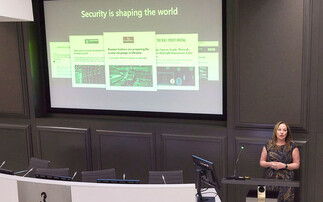NAO review suggests it could take up to 20 years to build up the necessary expertise
The UK's critical infrastructure is open to cyber-attacks because of a lack of experts able to thwart threats, warns a report by the National Audit Office (NAO). The NAO, which scrutinises publi...
To continue reading this article...
Join Computing
- Unlimited access to real-time news, analysis and opinion from the technology industry
- Receive important and breaking news in our daily newsletter
- Be the first to hear about our events and awards programmes
- Join live member only interviews with IT leaders at the ‘IT Lounge’; your chance to ask your burning tech questions and have them answered
- Access to the Computing Delta hub providing market intelligence and research
- Receive our members-only newsletter with exclusive opinion pieces from senior IT Leaders























